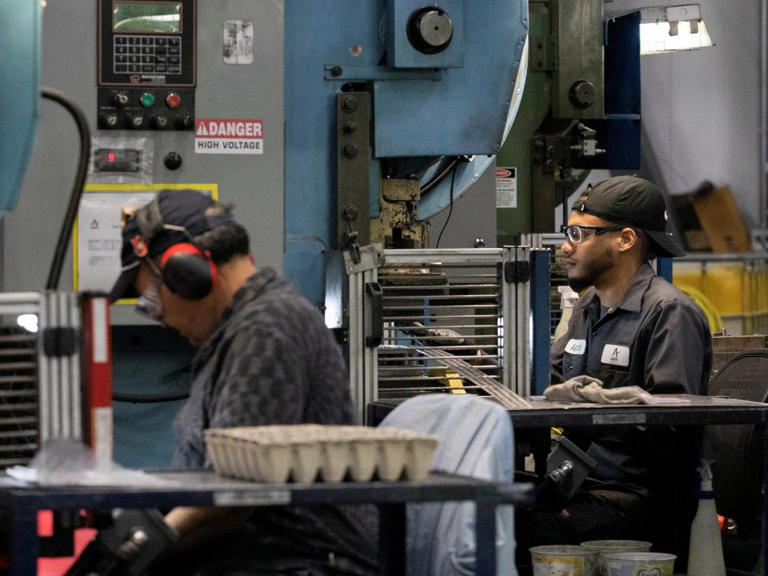Frank Stronach: Profit sharing would be a boon to the working class and spur economic activity
Opinion by Frank Stronach • 1h ago

Frank Stronach: Profit sharing would be a boon to the working class and spur economic activity© Provided by National Post
Do employees have the right to share in the profits they help produce? I believe they do, and I further believe that the government should require all large companies in Canada with more than 300 employees to share their profits with their workers.
Profit sharing is one of seven core principles I outlined in a recent column that spelled out how we could invigorate our economy and improve the living standards of all Canadians. It is a winning formula for economic prosperity.
When a company is small, its owner is much closer to its employees. The owner has to treat the employees well and pay them fairly or they’ll end up leaving. That’s what I did when I started Magna International. I always showed my workers how much money we had in the bank, and I created an informal sort of profit-sharing system.
Basically, I instituted a bonus system to help retain and motivate my employees. If we had a big order and got it done ahead of schedule, everyone pocketed some extra cash. But it was all very informal and ad hoc.
As my company got larger and I was more removed from the day-to-day operations and our growing workforce, I realized that I needed something more formal. That’s when we made profit sharing a core principle of our “corporate constitution.”
We made every employee a partner in profitability and required Magna to share 10 per cent of its annual profits with employees. After we formalized the right to profit sharing within the company’s constitution, I was amazed at the huge gains we made in both productivity and profits.
The reason why is simple: our employees were on the front lines of the factory floor and knew our products and production processes better than anyone else; they knew how to create greater efficiencies and how to work smarter.
Because they knew they would get a slice of the profits we generated, they put their hearts and souls into making quality products at competitive prices. In fact, it became our mantra at Magna: make a better product for a better price.
With profit sharing in place, profits soared. In hindsight, if I could do it all over again, I would have shared 20 per cent of our profits with employees instead of 10, though it was still a sizable chunk.
When a business is small, profit sharing should be left up to the discretion of the owner, who has to worry about reinvesting profits in product development and other issues related to getting the business up and running.
But when companies are making billions of dollars a year, they should have to share some of those profits with their employees. A company can’t make a profit without the hard work and ingenuity of its workers.
The truth of the matter is that although every businessperson wants fewer regulations, restrictions and government oversight, companies also have to realize that government has a higher duty to ensure the overall well-being of society.
Government also has the right to address the growing income inequality in our society. It can do so by imposing higher taxes and redistributing the income from those taxes in the form of social assistance payments and benefits. But in that case, no one wins in the long run because of the stifling effect that increased taxation has on productivity and economic growth.
Another — and I would argue, far better — way government can address income disparity is by requiring large companies to share profits. Under this scenario, everyone wins.
Sharing profits with workers would benefit companies, employees and governments. Companies would see an increase in productivity and profits. Employees would get more income. And governments would gain enhanced tax revenue due to the growth spurred by higher consumer spending.
But if we fail to allow workers to participate in wealth creation, and if the gap between the wealthy and the workers grows wider and wider, society will inevitably drift toward socialism, with growing cries to take from the rich and give to the poor.
Essentially, profit sharing is a philosophy that recognizes that a successful business is driven by three forces — managers, workers and investors — and that all three have a moral right to share in the success of the business.
If a national citizens’ movement adopted profit sharing as a key principle in the effort to restore Canada’s economic health, it would be a policy that millions of Canadians would likely support.
National Post
fstronachpost@gmail.com
Frank Stronach is the founder of Magna International Inc., one of Canada’s largest global companies, and an inductee in the Automotive Hall of Fame.
SHARHOLDING WITHOUT OWNERSHIP
IS CAPITALIST REFORMISM

No comments:
Post a Comment